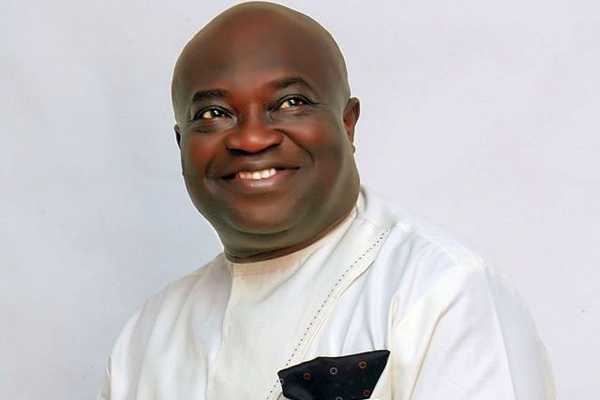Abia sets up one-stop shop, cost centres to improve IGR

In an attempt to shore up its internally generated revenue (IGR), the Abia State government is to establish cost centres in the three major cities of the state, namely, Aba, Umuahia and Ohafia.
The move will eliminate over taxing of citizens and check activities of fraudulent individuals who pose as government officials to collect levies and taxes from innocent citizens, without remitting same to government treasury.
The government has also set up a one-stop shop (Inland revenue building) in Aba and Umuahia to fast track business registration in the state.
The one-stop shop will not house only the Inland Revenue office, but also its partnersŌĆÖ (PPP) offices to create a friendly environment for investors and other patrons, who will come into the state to do business.
Abia is currently ranked 34 out of 36 in the ease of doing business in Nigeria, but it is the wish of the State Government to consistently work until it ranks among the top 10 in the country.
What it means in practical terms is that within seven days, somebody, who comes into Abia to do business, would have completed all the protocols that are required of him-the bills he has to pay, offices he has to visit, among other things.
Gabe Igboko, Commissioner for Environment and Solid Minerals Development, Abia State, in an exclusive interview with BusinessDay in Aba, the commercial hub of Abia State, affirmed that taxes in Abia is being harmonised to eliminate multiple taxation and touting in the State, especially, Aba.
Igboko, who is a member of the State Internally Generated Revenue Council, which is headed by Ude Oko Chukwu, Abia State deputy governor, said, ŌĆ£We donŌĆÖt want to encourage charlatans, who will claim all sorts of authorisation, by going for what they call ŌĆśflying revenueŌĆÖ.
ŌĆ£In my ministry we will say that there is nothing like ŌĆśflying revenueŌĆÖ, everything is stationery. Tax harmonisation is very much on our front burner.ŌĆÖŌĆÖ
Meanwhile, the State Government has commenced the sensitisation of business operators and other residents in the State, against touting and illegal collection of revenues in the State, especially in Aba.
This is in line with the ongoing revenue harmonisation exercise, being worked out by the Government and other stakeholders, to eliminate touting in the State.
The harmonisation exercise, would also ensure that all stakeholders contribute to the development of the State, as accurate taxes and levies collected by the State Government, would boost the StateŌĆÖs IGR and put more money in Government purse for developmental purposes.
To stop illegal tax collectors, the State Government said it has set up a monitoring committee to apprehend illegal tax operators, who disguise as Government officials to defraud innocent citizens in the State, especially in Aba, the StateŌĆÖs commercial hub.
This is as stunted growth in the nationŌĆÖs economy has been attributed to negative factors, among which is uncoordinated tax administration, commonly referred to as multiple taxation.
The State deputy governor, Ude Oko Chukwu, who revealed this at the third Abia Small and Medium Enterprises Forum, held in Aba, recently, explained that the committee is working secretly to identify the cartel with the view to eradicating multiple taxation in the State.
He stated that legal levies and taxes payable in Abia, would henceforth come in two demand notices and urged residents to report individuals or groups, who may want to impose other levies or taxes on them for arrest.
A research conducted by the Manufacturers Association of Nigeria (MAN) in collaboration with the Centre for International Private Enterprise (CIPE), one of the four core institutes of the National Endowment for Democracy and a non-profit affiliate of the US Chamber of Commerce, attributed the stunted growth in the nationŌĆÖs economy to negative factors, among which is uncoordinated tax administration, commonly referred to as multiple taxation.
According to the report, real sector contribution in the nationŌĆÖs gross domestic product (GDP) declined significantly from 9.5 percent in 1975 to 6.65 percent in 1995, 3.42 percent in 2005 and with a marginal increase to 4.21 percent in 2010.
┬ĀSimilarly, manufacturing capacity utilization declined rapidly from 70.1 percent in 1980 to 29.29 percent in 1995. While 52.78 percent was recorded in 2005, but declined to 46.44 percent in 2010.
Nwabueze Anyanwu, vice chairman, MAN, Imo and Abia states, explained further that a sample survey carried out by the association through random selection from over 2000 companies, which spread across the ten sectors in MAN, showed that in 2001, 1,323,586 people were employed by the sampled companies, that number according to him, declined to 1,005,861 in 2006 and 966,395 in the first half of 2010.
According to him, the incidences of multiple taxation are reported to be on the increase from year to year. The exact number of taxes and levies collected from enterprises in Nigeria are not clearly defined as a result of the non-specificity of the number of taxes chargeable and the continuous introduction of new ones by the various tiers of government, noting that studies estimated the number to be over 500.
ŌĆ£Currently, most businesses in Nigeria perceive the tax environment as unfriendly and a disincentive to businesses, because it increases the cost of doing business in the country.
┬ĀŌĆ£In their quest to enforce tax compliance, revenue officials often employ unorthodox methods where they harass business concerns, which most often disrupt industrial and economic activities.
┬ĀŌĆ£In some cases, company vehicles conveying products are impounded and are at times, damaged in the process,ŌĆØ the report revealed.┬Ā┬Ā
The aim of the study was to strengthen the capacity of the private sector to contribute more meaningfully to policy making process as well as to enhance the capacity of local, state and federal government officials to appreciate tax policies and their effects on businesses.
Nigeria's leading finance and market intelligence news report. Also home to expert opinion and commentary on politics, sports, lifestyle, and more
Leave a Comment









